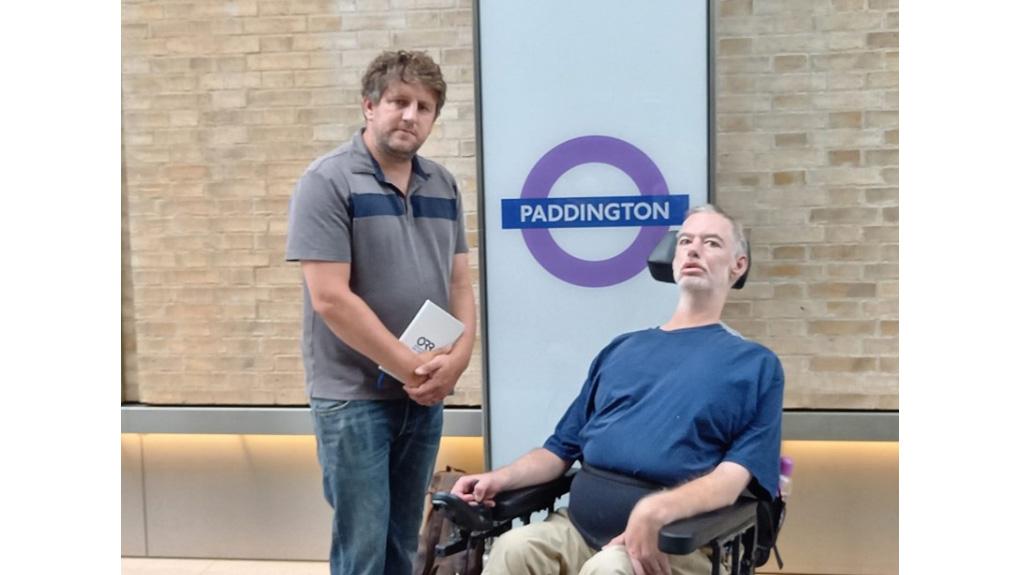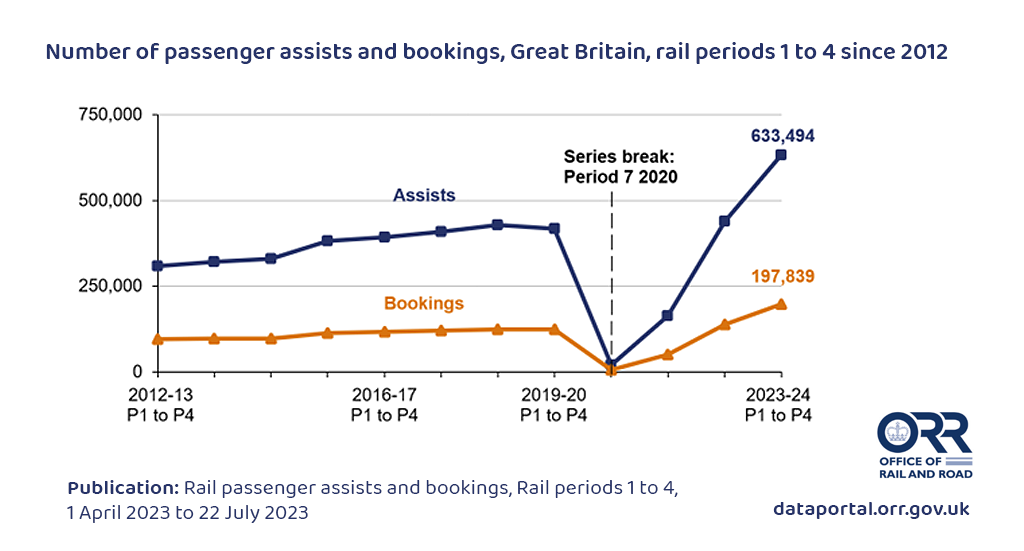
I’ve been accessibility policy manager at ORR for two years, and in that time I have learnt a great deal about the barriers disabled people face and the levels of confidence they feel when travelling by rail.
There is a reliance on accessible public transport. When the sector has issues in any area – from the planning and funding of trains and stations, through to disruption, communication and training – then disabled passengers will feel the impact most keenly.
I’ve also seen change during my period at ORR. Disabled people are now travelling by train in greater numbers than ever before. We collect and publish data on the number of assistance bookings, and the graphs tell a clear story: what initially looked like a recovery from the pandemic has increased well above the pre-COVID 19 levels. Of course, passengers don’t have to book in advance to get help, and the data that we have on unbooked assistance tells a similar story.

Satisfaction with booked assistance
Part of this increase may relate to improvements that make it easier to travel. In 2019, passengers that wanted to book their assistance had to give 24 hours’ notice, but now that time limit is down to two hours prior to travel. We’ve also seen changes to booking methods, with steady improvement in the functionality of the passenger app for the industry booking systems, and operators trialling dedicated WhatsApp communication.
These higher numbers also present a challenge for the railways – we’ve got to ensure that the reliability of assistance improves further, despite demand pressures.
Over the past five years, ORR’s has surveyed passengers that have booked assistance, and we’ve seen a steady improvement of scores for reliability and satisfaction. That said, the industry needs to do better. In 2022-23, 8% of respondents to our survey were getting none of the assistance that they booked - we want to see this eradicated.
That will require continued focus across a broad range of issues. We want to see industry continuing to work together to identify the areas that need to be improved, and taking action to resolve them. I don’t think there's a single silver bullet, particularly when funding is tight. Instead, we need to look for the opportunities for marginal improvement: from training on non-visible disabilities to lift malfunctions; from mobile-scooter policies to the accessibility of websites. There are plenty of things to keep our team busy over the next two years.

